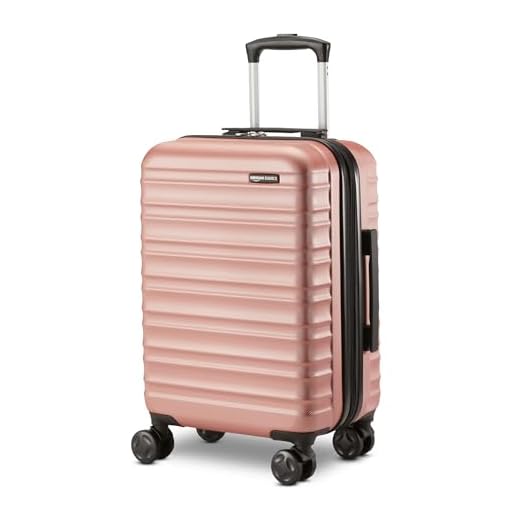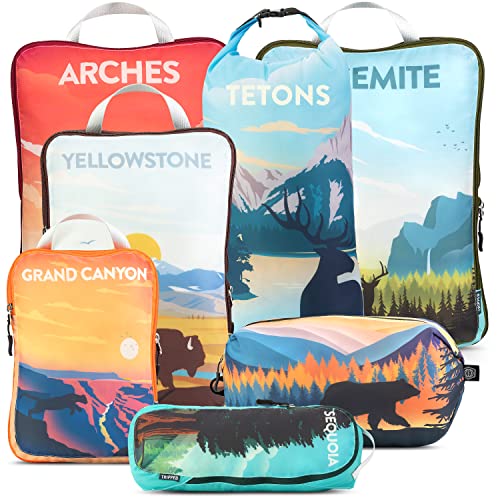



Packing light is generally the most practical approach for any traveler. Opting to minimize personal items can lead to a more convenient experience, reducing the stress of hauling heavy bags through crowded terminals and making transitions between various modes of transport smoother.
When traveling in groups, consider consolidating belongings. This strategy can significantly decrease the total volume of items needed, allowing more room for essentials while ensuring that all necessary gear is accounted for. By coordinating what each individual brings, you can avoid duplicates and utilize larger communal bags for shared necessities.
Furthermore, evaluating the specifics of your trip can provide clarity on what to carry. For instance, if accommodations offer laundry services or if you plan to stay at a destination for an extended period, bringing fewer garments becomes a feasible choice. In contrast, for quick getaways, it’s wise to prioritize essentials and leave behind non-essentials, thereby simplifying the process.
Decision on Luggage for Travel
Opting for individual bags can enhance convenience, allowing travelers to keep personal items accessible. This autonomy can simplify transitions at airports or during train journeys where waiting times may vary.
In contrast, consolidating gear among companions can lead to reduced expenses, especially regarding baggage fees. Balancing weight limits and cargo space can improve logistics for larger groups, facilitating smoother travel arrangements.
Prioritizing portability versus personal preference plays a vital role in making this choice. If recreational activities are involved, evaluating the specific gear needed for activities like skiing or camping may influence whether sharing equipment is practical.
Organizing items based on necessity can drive collective efficiency. Establishing a checklist helps identify essentials versus luxury items, promoting a streamlined approach for everyone involved.
Ultimately, assessing comfort levels with packing and managing gear can determine the best strategy. Open communication about personal needs and preferences ensures a cohesive approach that benefits all participants during the excursion.
Analyzing Costs of Individual Luggage vs. Shared Options
Opting for combined transportation of belongings significantly reduces expenses. On average, when multiple travelers organize a singular bag, savings can range from 20% to 50% compared to individual transportation. This analysis hinges on various factors, including airline fees, luggage dimensions, and weight limitations.
Examining the breakdown of costs provides clearer insights:
| Cost Component | Individual Approach (Per Person) | Combined Approach (Per Person) |
|---|---|---|
| Airline Fees (Standard Check-in) | $30 – $60 | $20 – $40 |
| Extra Weight Charges (Over 50 lbs) | $50 – $100 | $25 – $50 |
| Storage Fees (if applicable) | $10 – $20 | $5 – $10 |
| Total Estimated Costs | $90 – $180 | $50 – $100 |
Considering additional aspects such as convenience and flexibility, shared options often provide logistical advantages. Coordinating weight distribution not only helps in managing the charges but also simplifies the process during transfers between connections.
For longer excursions, scrutinizing potential limits on baggage weight for specific carriers remains paramount, as these constraints can heavily influence total spending. Seeking guidance on group rates can yield further discounts, enhancing financial practicality.
In summary, collaborative transport of items typically yields superior financial benefits, while also alleviating the strain associated with managing multiple bags.
Assessing Convenience: Individual Luggage or Collaborative Packing
The choice between personal baggage and communal packing hinges on several key factors that directly impact convenience.
Individual Responsibilities
- Carrying personal items ensures immediate access without the need to consult others.
- Personal belongings are safeguarded against misplacement when controlled by the individual.
- Travelers have full autonomy over their packing, allowing for tailored essentials.
Group Dynamics
- Collaborative packing reduces the overall volume of items, potentially leading to a lighter load.
- Sharing can foster teamwork by encouraging communication and mutual planning.
- It may also lower the risk of duplication, optimizing space within collective bags.
Ultimately, whether to pack independently or join forces with others is dictated by the specific context and preferences, with practicality being a major determinant. Evaluate the scenarios to determine which method resonates best with individual convenience and group harmony.
Impact on Travel Experience: Freedom or Compromise?
Opting for personal items instead of collaborative baggage significantly enhances autonomy during trips. This choice fosters a unique sense of ownership over belongings and allows for more tailored packing to individual preferences, ensuring that essentials are always accessible.
Having individual items can streamline the travel process by eliminating the need for coordination and negotiation about shared items. Each traveler can bring exactly what is necessary without relying on others, cutting down on time spent waiting for others to gather or settle on shared possessions.
However, the decision to travel with individual gear may lead to extra expenses, particularly with airlines that impose fees for additional bags. This financial consideration can impact the overall experience, as travelers may need to adjust plans based on budget constraints, potentially restricting activities or accommodations.
Creating a personalized packing list can address the balance between comfort and restriction. Prioritizing lightweight and multifunctional items will allow for flexibility while maximizing what can be brought along. Choosing compact gear helps maintain mobility, facilitating spontaneous excursions without the burden of excessive weight.
Ultimately, the essence of any trip lies in the freedom of choice. While independence provides advantages in personal comfort and access, it also requires careful planning to avoid financial strains. Weighing these factors will lead to a more coherent travel experience tailored to individual needs.
Environmental Considerations: Luggage Sharing and Sustainability
Opting for collaborative packing significantly reduces the carbon footprint associated with transportation. By consolidating personal belongings, emissions from vehicles can be minimized, leading to less environmental impact. Sharing allows for thoughtful choices regarding materials and products brought along, which can enhance sustainability efforts during trips.
For instance, selecting versatile items such as the best umbrella for sporting events or the best mini compact travel umbrella can cut down on bulkiness and redundancy, ensuring a lighter travel footprint. Additionally, utilizing products made from sustainable materials throughout the journey decreases environmental harm.
In terms of resource efficiency, shared bags reduce the demand for new luggage manufacturing, conserving materials and energy. This practice fosters a culture of sharing within groups, aligning closely with sustainable habits and eco-friendly values.
Long-term Impact on Consumer Choices
Encouraging shared travel arrangements can influence broader purchasing decisions. As eco-consciousness grows among travelers, the appeal of sustainable travel products, including eco-friendly accessories and travel gear, will likely rise. In this light, innovations in products such as the best pressure washers to start a business can also reflect the shift towards sustainability in daily usage.
In summary, opting for collaborative packing not only enhances the travel experience but also supports sustainable practices that benefit the environment. By prioritizing shared solutions, individuals contribute to a more responsible travel culture.







